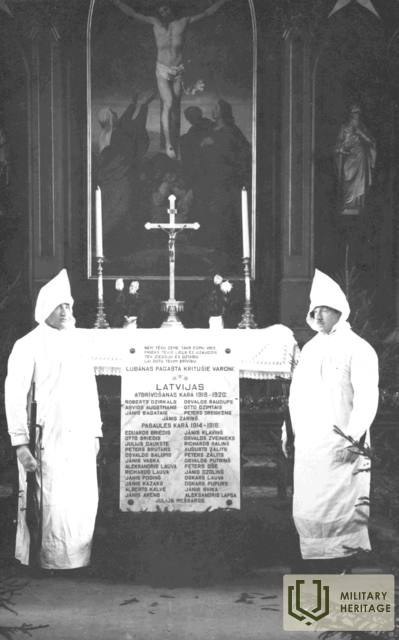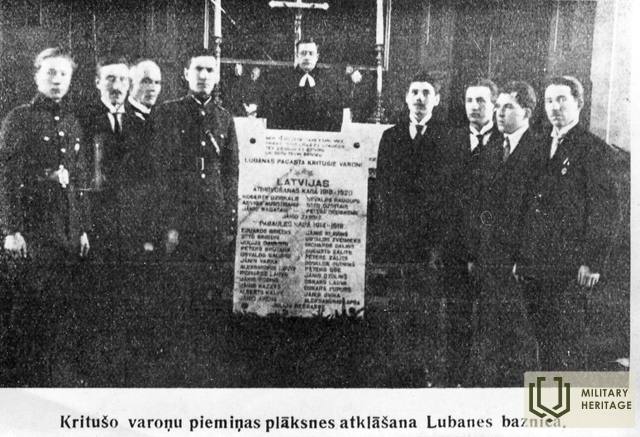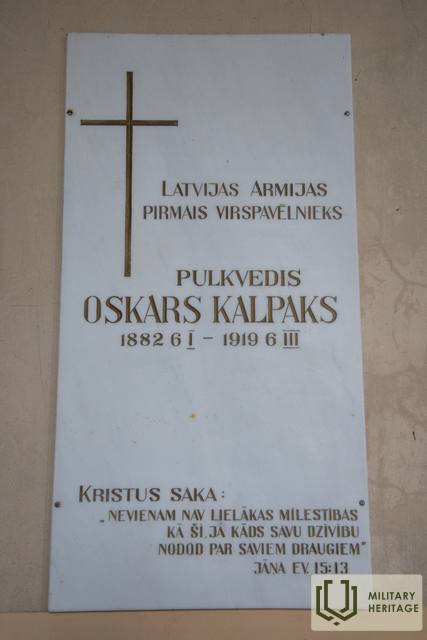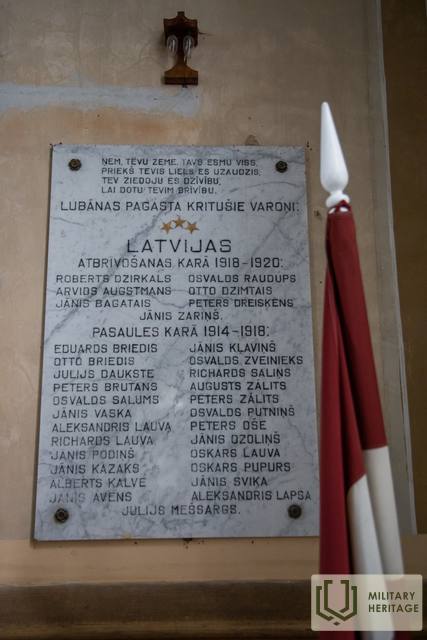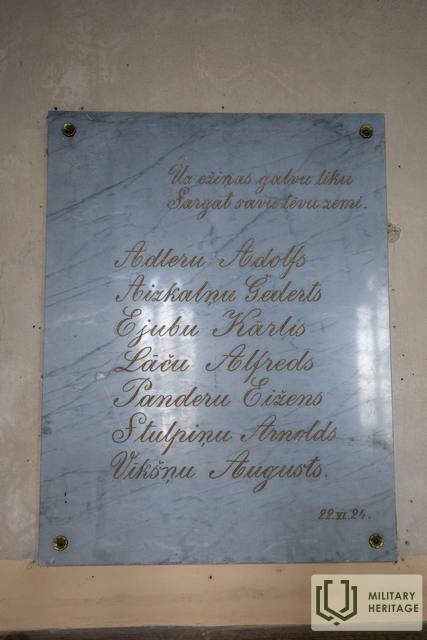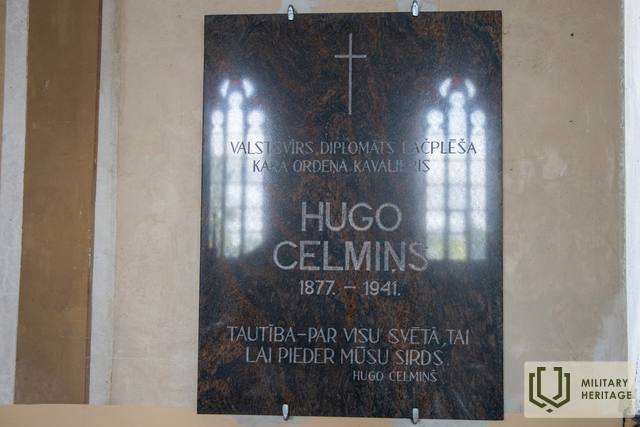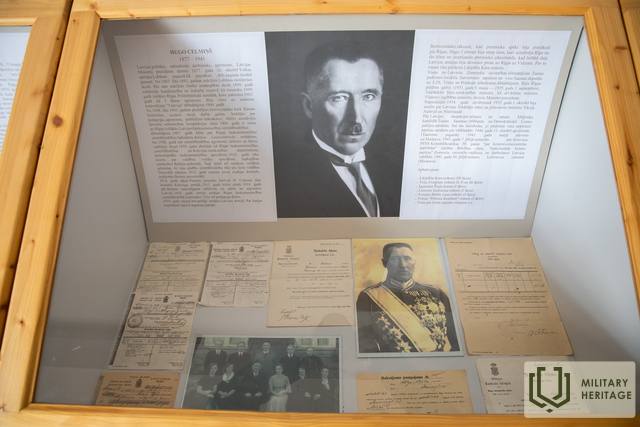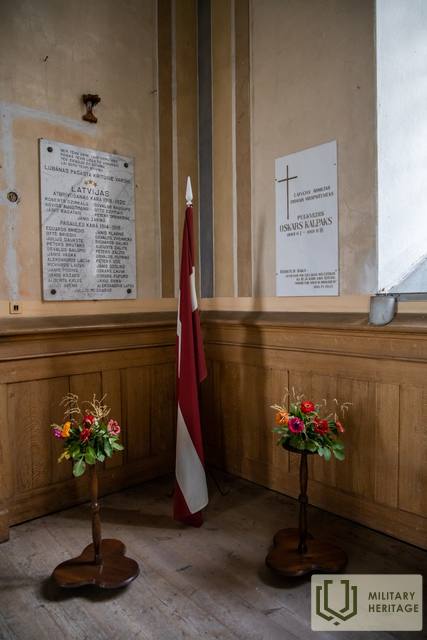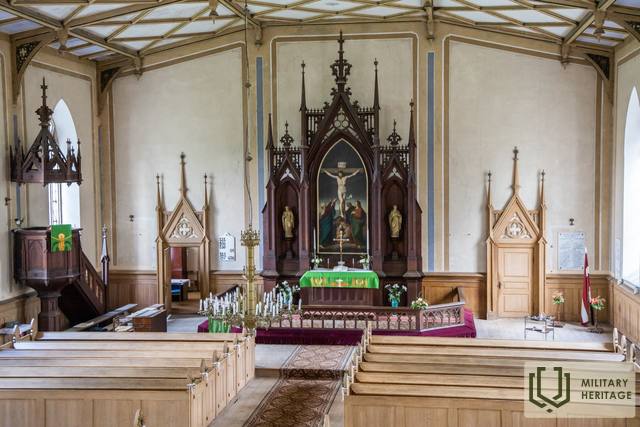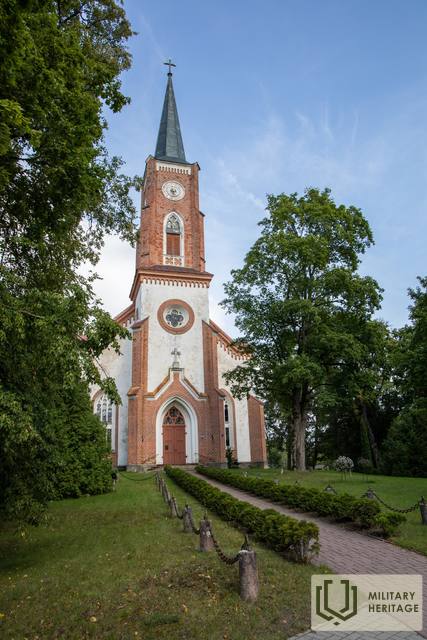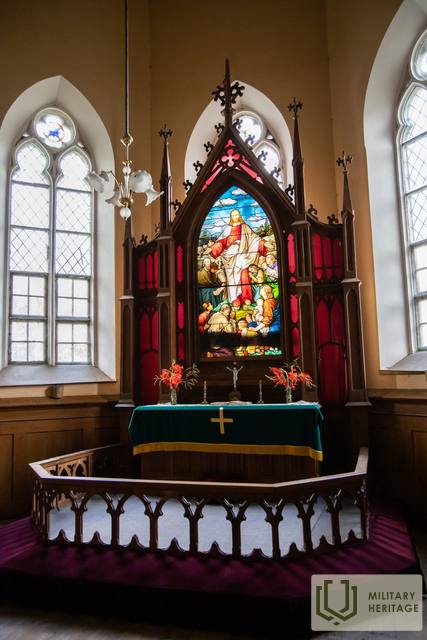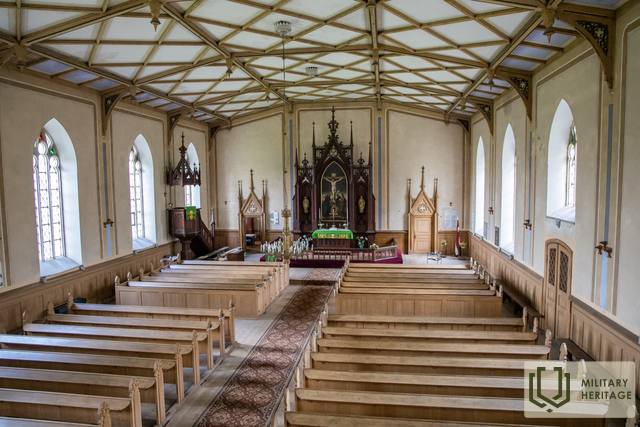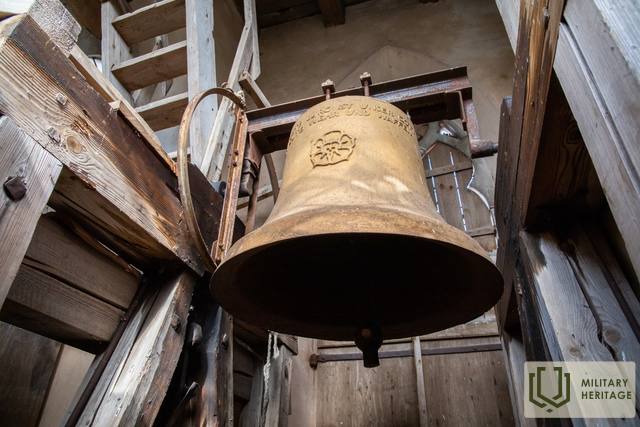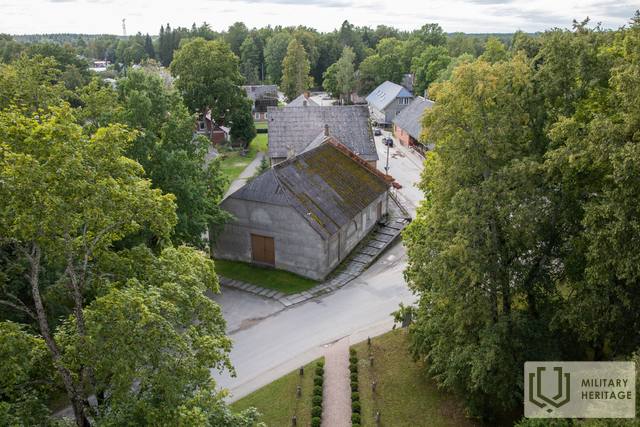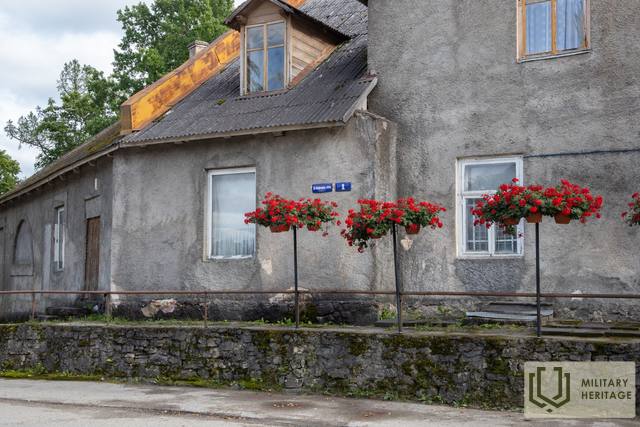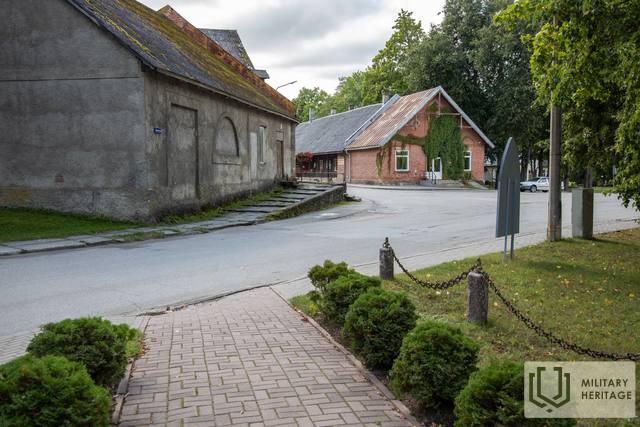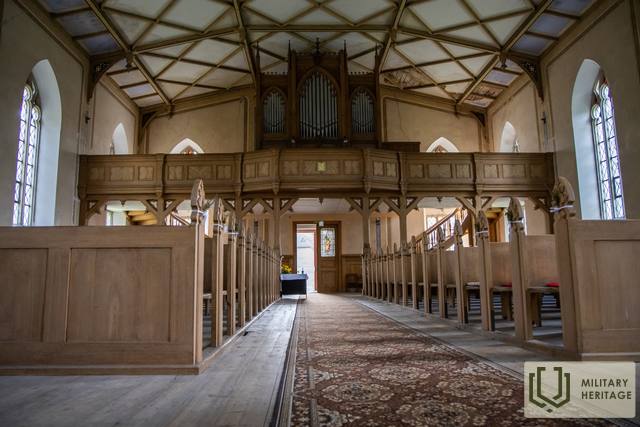Memorial plaques for Lubāna residents who fell in World War I and the War of Independence at the Lubāna Lutheran Church
Memorial site

Located in Lubāna, Baznīcas Street 1, in the Lutheran church.
A white marble memorial plaque to Colonel Oskars Kalpaks, installed in the Lubāna church during the interwar period, can be seen. On June 22, 1924, a memorial plaque was unveiled in the church to the fallen students of Lubāna secondary school. In 1926, a memorial plaque installed by the Lubāna parish to the fallen residents of the parish was unveiled, as well as a memorial plaque to the Prime Minister Hugo Celmiņš, who was born in "Nagliņa" in Lubāna parish.
Materials about Oskars Kalpaks and Hugo Celmiņš's everyday life can be viewed in the exhibition of the Lubāna Cultural and Historical Heritage and Tourism Information Center.
Used sources and references:
Lismanis, J. 1915-1920. In memory of battles and fallen soldiers: Memorial sites of the First World War and the Latvian Liberation Struggle. Riga: NIMS, 1999.
https://www.mk.gov.lv/sites/default/files/editor/premjeru_gramata.pdf
Related timeline
Related topics
Related stories
In memory of Oskars Kalpaks
The memory of Oskars Kalpaks is preserved in many places – this is evidenced by his native Liepsalu house, a monument in the Visagala cemetery, commemorative events and beautiful concerts on March 6, the Meirānu Kalpaks Elementary School, streets in Lubāna, Madona and other cities, and on and on. But in this article – about the preservation of the memory of Oskars Kalpaks in his native region in the 1920s–1930s.
Colonel Kalpak's last battle near Airīte
Colonel Kalpaks was a respected figure in military circles and a true patriot. It was the spirit of patriotism and an unfortunate coincidence that led to the fatal clash between him and the German battalions, which unfortunately ended with the death of Colonel Kalpaks.
The Battle of the Oskars Kalpaks Battalion at Lielauce
On the night of January 15, the Kalpaks Battalion fought the first battle at Lielauce, repelling the Red attack. It was the first significant battle of the Kalpaks Battalion, and the victory gave the soldiers a particularly strong morale boost.




